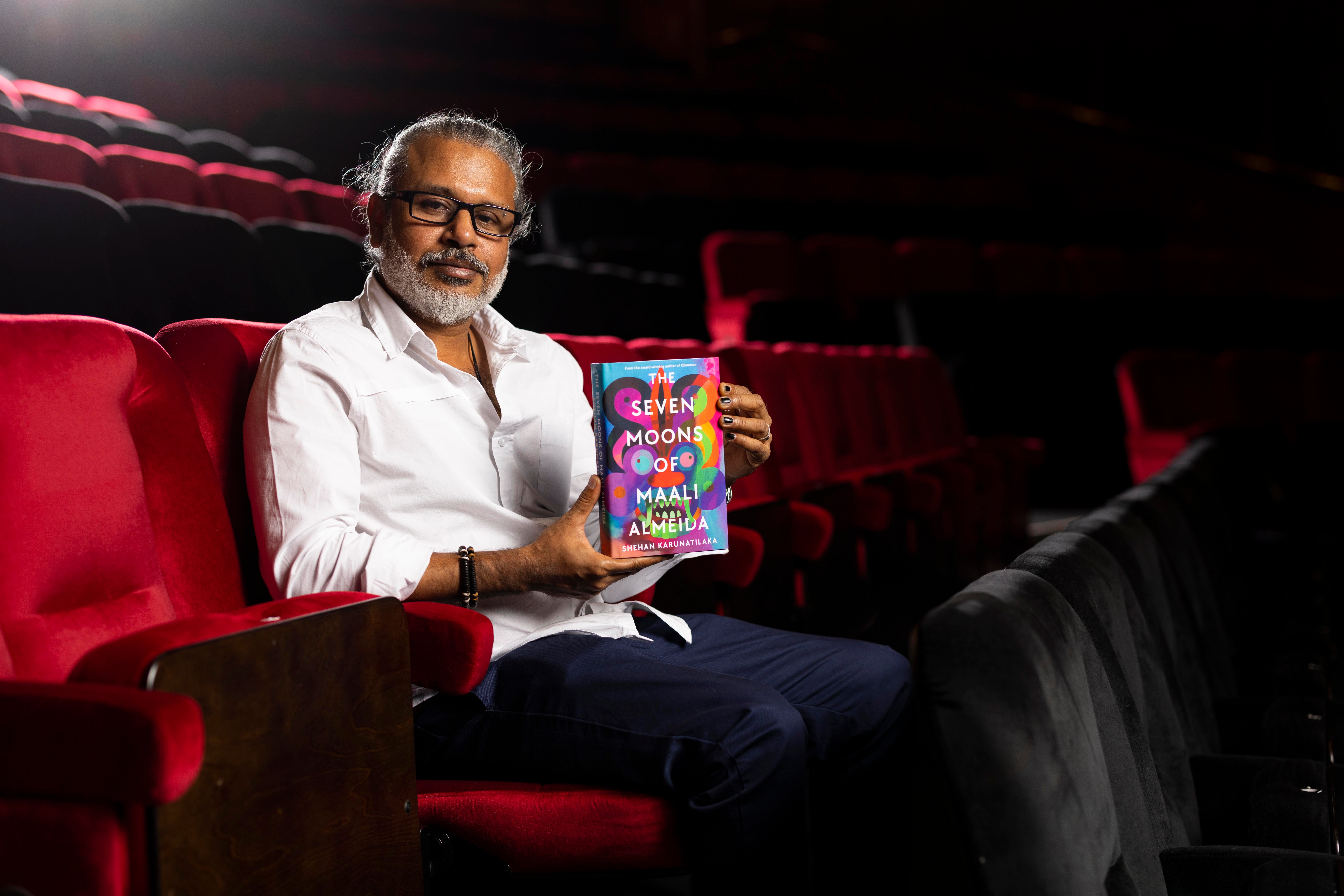Booker Prize 2022 winner The Seven Moons of Maali Almeida is compelling about conflict – but not a simple read
Sri Lankan writer Shehan Karunatilaka has won this year’s £50,000 prize for a metaphysical thriller about the horrors of civil war. It’s easy to see why the judges liked it, writes Martin Chilton, but a shame to see Claire Keegan miss out for her moving novella


Shehan Karunatilaka, winner of the Booker Prize 2022, began planning how to tell the brutal horrors of civil war in Sri Lanka through fiction more than a decade ago. He said he gradually realised he would need a magical realist presentation, because “only the dead could offer plausible explanations of the Sri Lankan tragedy, as the living clearly did not have a clue”.
The Seven Moons of Maali Almeida, published by the independent Sort of Books, is the complex story of a gay war photographer who wakes up dead, in an underworld, and has “seven moons” (seven days) to discover who murdered him, expose his killer and find evidence to bring down a corrupt government.
I understand why the judges loved this metaphysical thriller – chair Neil MacGregor picked out the “hilarious audacity of its narrative techniques” – and Karunatilaka, who becomes the second Sri Lankan-born author to win the £50,000 Booker Prize following Michael Ondaatje in 1992, admitted honing constant edits to make the book “less impenetrable for readers unversed in Sri Lankan folklore or tragedy”. A great novel exists on so many different levels and the more patience a reader brings to Karunatilaka’s book, the better it will be for them. But it’s not a simple read. And it really is more of a ghost story than a humorous satire.
The Seven Moons of Maali Almeida, which has also been called “afterlife noir”, is richly atmospheric and full of colourful similes, and has the boldness you would expect from the author of Chinaman, the 2011 debut novel that won the Commonwealth Prize. His Booker winner also has a touching tenderness amid the mayhem.
Yet, it was not my favourite from the shortlist. Are you happier eating ice cream than tiramisu? Like desserts, choosing the winner of a literary prize is a matter of taste. The judges whittled down 169 submissions to an impressive, varied final six (although without the deserved After Sappho, by Selby Wynn Schwartz), with an equal split of women and men.
I admire Alan’s Garner’s body of work and hopefully the £2,500 condolence prize given to each shortlisted author will have been a nice bonus on his 88th birthday. However, and whisper this heresy quietly, I found Treacle Walker, a story about dreamlike encounters between a lonely boy and a rag-and-bone man, to be, well, a little tedious – even at just 15,000 words.
Another “loser” was NoViolet Bulawayo’s bold satire Glory, about the fall of an African dictator, told from the perspective of talking animals. The judges were right not to crown Oh William!, another book featuring Pulitzer-winning Elizabeth Strout’s character Lucy Barton, even though it is a reliably strong novel. The most anarchically entertaining book was Percival Everett’s The Trees, a bitingly original satire on racism in America. It’s genuinely funny and might even have been a deserved winner bar some overcooked lampooning.

The novel I would most eagerly press into someone’s hands is Claire Keegan’s Small Things Like These. The story is short (114 pages) yet perfectly formed. Set in 1985 in a small Irish town, it centres on one ordinary man’s reaction to the Magdalene Laundries scandal. It is a quiet, undemonstrative book that is remarkably moving. Perhaps it’s nitpicking to extol the virtues of a “loser”, yet Shuggie Bain (Douglas Stuart) and The Promise (Damon Galgut) were standout winners in the past two years, and it is hard to share that conviction over The Seven Moons of Maali Almeida.
In any case, it’s best not to get too het up about who takes the ribbon in a literary winner’s enclosure. Hopefully, the Booker will stimulate sales of all the books. And, in the midst of chaotic, bewildering times, Karunatilaka’s novel offers the opportunity to understand what is transpiring in a troubled part of the world, with compelling things to say about the nature of conflict and the importance of an individual life.
Join our commenting forum
Join thought-provoking conversations, follow other Independent readers and see their replies
Comments


Bookmark popover
Removed from bookmarks